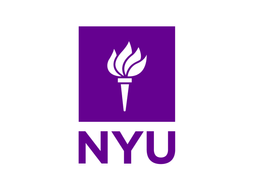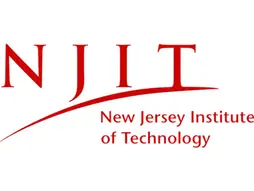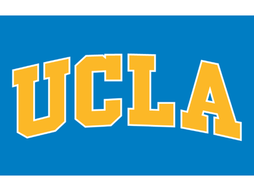Stanford Debate Camps for High School Students: A Deep Dive
The Stanford National Forensic Institute runs speech, debate, and public speaking summer programs. It is organized by the Stanford Debate Society, a student-run body that represents Stanford at various intercollegiate debate competitions around the world. Led by accomplished educators and seasoned debate coaches, the SNFI is one of the better-known debate camps in the country with a positive track record of students improving their debating skills. It has hosted over 5,000 students in the last decade and has been around since 1990! Note that the following information is based on the most recent program, with dates subject to change but generally similar from year to year.
Here are a few basic details about the program:
Application deadline: Students who apply and pay the total fee amount before May 1, are guaranteed admission on a rolling basis. Applications sent after June 10, could incur a late fee.
Eligibility: Students from grades 7 - 12. International students can apply but the organization is unable to provide assistance in the matter of getting a visa.
Cost: $750-$4,500 depending on the program specifics
Location: Stanford University (residential and commuter options available)
Financial assistance: Limited financial aid is available for students who can demonstrate need and talent
Are Stanford Debate Camps prestigious?
Since this program is connected with a top university like Stanford and is hosted by the Stanford Debate Society (which has taken part in international-level debates), it does come with a certain level of prestige. However, the program is known to come with higher costs and does not rank as high as other programs like the Capitole Debate Camp and Harvard Debate Council’s Summer Workshops.
How to choose which debate camp to participate in?
Aimed at middle and high school students, these camps are a great way to step into the world of communication, critical thinking, and competitive debate. But there are a number of options to choose from. Let’s break it down.
Before you make a choice, here are a few things you should consider:
1. Your interests and goals
The SNFI offers programs on competitive speech, debates, a combination of both, and even public speaking.
Competitive speech highlights your individual persuasiveness.
Debate programs have an adversarial component.
Public speaking solely looks at the skills needed to speak in front of a crowd.
You can pick an option depending on your interests and goals (whether you’re gearing up for a specific event or just looking for an introductory course). You’ll find a breakdown of each category below, where you can read through the descriptions and choose the option that best suits your needs.
2. How much time you can commit
Each debate format has multiple programs ranging from 1-week to 4-week options. The longer programs go into more detail and offer more practical experience. The longest ones generally include a weeklong intensive session that focuses only on practice rounds. The shorter programs are more beginner-friendly, although students are recommended to take the 2-week course and opt for the 1-week option only if they are really short on time.
Stanford Debate Camps Explained
Here, you can go through the several debate camps available, with each one looking at a different format. While the structure of the debate varies, so does the rigorousness of the research involved and we’ve tried to clarify that as well. This way, you can make an informed choice.
Policy Debate is where students research and debate a specific policy proposal, often related to government or societal issues. You will work on big-picture topics like the deployment of US troops abroad or the protection of the marine environment. In terms of arguments, emphasis is placed on practicality and evidence from credible sources. The program will introduce you to the major principles of policy debate and offer training in evidence production. It will also hone your critical thinking and strategy skills.
Format: Two on two
Research Level: High. Students are expected to do research in-depth and become experts in their specific area.
The Lincoln Douglas debate revolves around questions of a moral or philosophical nature, on themes like security, liberty, or human rights. Arguments in this style of debate center on principles and values rather than only relying on research-based evidence. The curriculum of this program includes lab time, lectures, an elective of your choice, and a minimum of 10 practice rounds.
Format: One-on-one
Research Level: Moderate. As compared with policy debate, an LD case requires less research in a specific area and instead focuses on ethical theories and broad philosophical concepts.
One of the most popular forms of collegiate debates in the US, parliamentary debates have a structure wherein topics are only provided right before the debate. With only 15-20 minutes to prepare for the debate, this style will focus on your ability to think on your feet, draft quick arguments and effectively present them. Apart from at least 15 practice rounds, the curriculum will also focus on communication theory, research methods and group exercises.
Format: Two on two
Research Level: Low. As a result of the minimal prep time, topics are generally broad and not limited to either philosophical or pragmatic categories. They can even be related to pop culture or other current happenings. However, this doesn’t mean it’s easy, just that the debate focuses on different qualities.
Similar to the policy debate format, public forum debates look at current event issues or policy-related topics. Practice rounds will take up about half of the total instruction time during this program. Additionally, you will learn how to construct and support arguments, analyze topics and speaking styles, and be trained in cross-examination techniques.
Format: Two on two
Research Level: Moderate. The topics are similar to those of policy debates but more specific in nature, making the research narrower and less rigorous.
Congressional Debate simulates the legislative process, where students take on roles of members of Congress and debate bills and resolutions. Campers learn about parliamentary procedure, research, and effective speech delivery. Rather than facing an adversary, such debates focus more on in-depth discussions as a group, understanding policy issues, and individual persuasion skills.
Format: A mock legislative session
Research Level: High.
If picking one format of debate is too hard, consider the Beginners’ Introduction to Debate program which has a 1-week introductory course after which you are allowed to choose which format you would like to work on.
Other Camps:
In addition to the institution's debate camps, these are options for those interested in competitive speech, public speaking, and other hybrid formats.
While debates are inherently adversarial (your arguments and responses are directed to an opponent), competitive speech programs focus on individual merit and persuasiveness. While your speech will be compared with others, there is no direct clash between students. While this category has several programs of varying duration and focus, you can expect to work on extemporaneous speaking, oratory skills, and interpretive techniques. In most cases, you will leave the program with one ‘tournament ready’ piece.
If you’d like to avoid the competition factor altogether, consider public speaking programs where the emphasis is solely on speaking in front of others. The curriculum includes the same logic, rhetoric, and argument skills involved in introductory debate sessions but without the adversarial component. You will be trained in logical thinking, argumentative structures, impromptu speaking, posture, eye contact, and poise.
The forensics sessions focus on both speech and debate. This is an ideal program for those who want to learn the foundational skills in both categories. You will also learn about the various competitive events available and be able to chart a path forward for yourself. By the end of the program, you will have a well-rounded understanding of the intricacies within each category.
Pros and Cons
Pros:
1. Flexible time commitment: With multiple options that range from 1-week to 4-week courses, you don’t need to worry about committing more time than you can.
2. Overall structure: The programs are known for offering high-quality training in speech and debate, providing students with valuable skills in communication, critical thinking, and research.
3. Immersive and intense: This is an accelerated debate program. It will equip you with a lot of foundational skills and help you build a reflection loop that’ll help you keep an eye out on your own progress as you attend debate competitions throughout the year. In that sense, this program will pay dividends throughout the year. Here’s what one participant had to say:
"The sheer amount of experience given within a 3-week period is enough practice to equate to a year and a half of debate, and that develops debaters at a very accelerated rate."
-- Kayra, SNFI Participant
4. Varied options to learn different debating styles: While all camps have a balance of instruction and practical experience, the various categories help you select what resonates most with your interests. This includes specific areas of speech and debate or varying levels of expertise and competitiveness. Here’s their guide on how to select the right program.
5. The network: A big part of most debate structures is teamwork. You will often have a co-participant and debate in two’s (for example, in Ted Turner), or be working with a team of researchers (because great research makes great debaters - it is not just the oratory skill). This camp draws students from all over the country, making it an excellent opportunity to network with and learn from motivated peers. Here’s what one participant had to say:
"Not only did I get better at debate, but I met amazing people."
-- Dhruv, SNFI Participant”
Cons:
The Cost: While the program undoubtedly offers some benefits, the associated costs could potentially be a deterrent. The fees cover tuition, meals, and housing but do not extend to transportation. Financial aid is limited. However, if you are looking for a national-caliber debate camp, then we’d say bite the bullet and attend this one.
Intensive Schedule: The programs often involve rigorous training and demanding schedules, which could be overwhelming for students who have other commitments during the summer.
No guaranteed admission: As much as these camps improve your debate and speech skills and even enhance your resume, they do not offer any guarantee of admission to Stanford University.
Our Review
Debating is a pretty solid skill set to have. It helps you think through your position on important issues and build an understanding of positions that may be counter-intuitive. This builds holistic thinking and comes in very handy no matter what you land up doing. A good debater is also a pretty solid researcher. It’s not always confidence in your speech but also the substance that’ll help you be an ace debater. Last, but certainly not least, it helps you be a good orator, an overall communicator, and think on your feet - you’ll be able to read a room and change your tone, posture, or communication depending on how you perceive information being received.
If you are targeting a career in law, politics, or media, this is invaluable training. However, even if you have other goals, all of these skills will be very beneficial.
Coming to our take on the Stanford Debate Camps - this is a solid choice for a debate enthusiast! We’d highly recommend it. If you participate in debate competitions, impromptu speaking, and other oratory tournaments then this is a pretty solid camp. If you are only looking to polish public speaking skills then this might be a bit too intense for the purpose.
One other option – Lumiere Research Scholar Program
If you are interested in doing research as a high school student, then you could also consider applying to the Lumiere Research Scholar Program, a selective online high school program for students that I founded with researchers at Harvard and Oxford. Last year, we had over 4000 students apply for 500 spots in the program! You can find the application form here.
Stephen is one of the founders of Lumiere and a Harvard College graduate. He founded Lumiere as a Ph.D. student at Harvard Business School. Lumiere is a selective research program where students work 1-1 with a research mentor to develop an independent research paper.
Image Source: Stanford University logo











